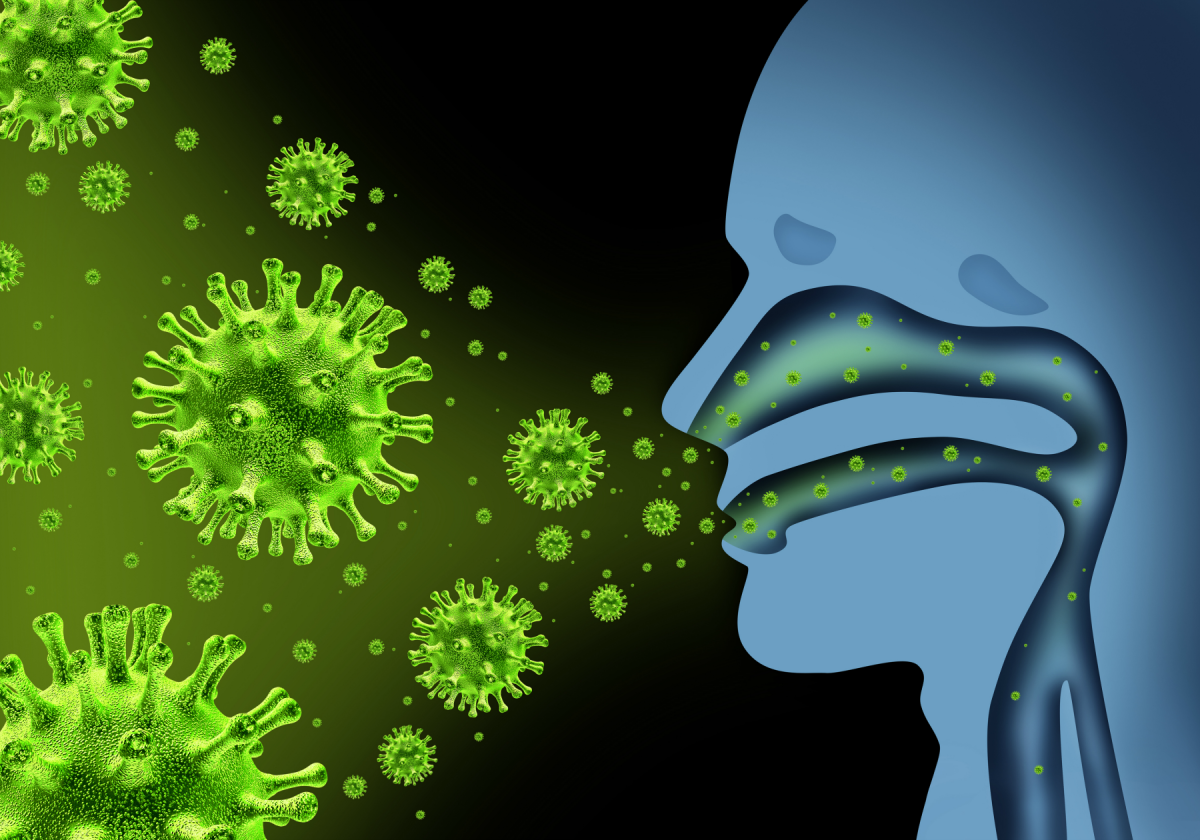Overview Of Influenza
Influenza, or the flu, is a contagious respiratory illness caused by influenza viruses that can infect the nose, throat, and sometimes the lungs. It typically spreads through respiratory droplets when an infected person coughs, sneezes, or talks. Symptoms of influenza include fever, chills, cough, sore throat, body aches, fatigue, and headaches. While many people recover without medical treatment, the flu can lead to severe complications, especially in young children, elderly adults, and those with weakened immune systems.
Symptoms of Influenza
- Common symptoms of influenza include fever, chills, cough, sore throat, runny nose, body aches, fatigue, and headaches. Gastrointestinal symptoms like nausea, vomiting, and diarrhea may also occur, especially in children. The severity of symptoms can range from mild to severe, and complications such as pneumonia, bronchitis, and sinus infections may arise, leading to further health issues.
Causes of Influenza
- - Influenza viruses (types A, B, and C) - Close contact with infected individuals - Exposure to contaminated surfaces - Seasonal changes, particularly colder months - Weakened immune system or chronic health conditions
Risk Factors of Influenza
- - Age: Young children, elderly adults, and pregnant women are at higher risk. - Weak immune system: Individuals with conditions like asthma, diabetes, or heart disease are more susceptible. - Close contact settings: Schools, nursing homes, and workplaces increase the likelihood of exposure. - Seasonal timing: Flu season usually peaks in the winter, when people are more likely to be in close proximity to one another.
Prevention of Influenza
- The most effective way to prevent influenza is through annual vaccination. The flu vaccine is updated every year to protect against the most common strains. Other preventive measures include frequent handwashing, avoiding close contact with infected individuals, and covering coughs and sneezes to reduce the spread of the virus.
Prognosis of Influenza
- The prognosis for most individuals with influenza is generally good, especially with proper treatment and rest. However, complications can arise, particularly in vulnerable populations. Hospitalization may be required in severe cases, and in rare instances, the flu can lead to death, especially when secondary infections like pneumonia develop.
Complications of Influenza
- Complications of influenza include pneumonia, bronchitis, sinus infections, ear infections, and worsening of pre-existing conditions like asthma or heart disease. In rare cases, the flu can lead to life-threatening complications such as sepsis or organ failure.
Related Diseases of Influenza
- Influenza is related to other viral respiratory infections, such as the common cold and COVID-
- Although they share some symptoms, influenza typically causes more severe illness and can lead to serious complications. Additionally, the flu virus can sometimes trigger secondary bacterial infections like pneumonia.
Treatment of Influenza
For mild cases, over-the-counter medications such as acetaminophen or ibuprofen may help alleviate symptoms. Antiviral drugs like oseltamivir (Tamiflu) can reduce the duration of illness if started within 48 hours of symptom onset. Rest, hydration, and proper nutrition are also critical. In more severe cases, hospitalization may be necessary, and patients may be treated with oxygen therapy or intravenous fluids.
Generics For Influenza
Our administration and support staff all have exceptional people skills and trained to assist you with all medical enquiries.

Amantadine Hydrochloride
Amantadine Hydrochloride

Paracetamol + Caffeine
Paracetamol + Caffeine

Oseltamivir
Oseltamivir

Influenza vaccine inactivated (split virion)
Influenza vaccine inactivated (split virion)

Diphtheria toxoids + tetanus toxoids + pertussis toxoid + inactivated Poliomyelitis virus + Haemophilus influenzae type b Vaccine
Diphtheria toxoids + tetanus toxoids + pertussis toxoid + inactivated Poliomyelitis virus + Haemophilus influenzae type b Vaccine

Haemophilus Influenzae Type B Polysaccharide Vaccine
Haemophilus Influenzae Type B Polysaccharide Vaccine

Zannamivir
Zannamivir

Amantadine Hydrochloride
Amantadine Hydrochloride

Paracetamol + Caffeine
Paracetamol + Caffeine

Oseltamivir
Oseltamivir

Influenza vaccine inactivated (split virion)
Influenza vaccine inactivated (split virion)

Diphtheria toxoids + tetanus toxoids + pertussis toxoid + inactivated Poliomyelitis virus + Haemophilus influenzae type b Vaccine
Diphtheria toxoids + tetanus toxoids + pertussis toxoid + inactivated Poliomyelitis virus + Haemophilus influenzae type b Vaccine

Haemophilus Influenzae Type B Polysaccharide Vaccine
Haemophilus Influenzae Type B Polysaccharide Vaccine

Zannamivir
Zannamivir


